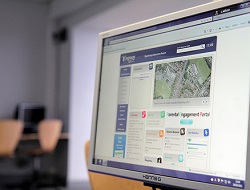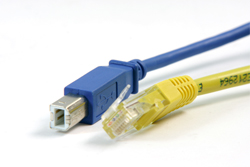
Developing an Acceptable Use Policy (AUP) for ICT should include usage of school-based equipment, both wired and wireless networks and infrastructures, for both BYOD and BYOA.
Establishing an overall policy framework for electronic communications should recognise the convergence of communications functions and services.
It should also clarify the applicability of law and other school policies such as data-protection, safe-guarding, health and safety and computer misuse.

There has been a lot of discussion in the media recently about Bring Your Own Device (BOYD) or Bring Your Own Technology (BYOT). A concept that started out in the business world, it now also refers to students who use their own electronic devices to support their learning whilst at school, from home, or at other remote locations. Connectivity of the school's network with personal devices is therefore an area that requires careful attention.
It is of paramount importance that students who use their own devices are able to do so without putting their school’s network or themselves at risk. The school must invest in a robust, accessible and cost effective security system that encompasses the school’s and student’s needs. This may be a controlled or control-less option - the former being more favourable due to the rise of technology in education and the increase in usage of wireless devices and cloud-hosted systems.

What do you know about Phishing, Cookies, Worms and Trojans in a technological world? Do they still mean sitting out by the river waiting for a bite, biscuits, small garden slimy things or a person from ancient Troy?
The rise of online communication, financial management, social networking and education is expected to continue. As users of a whole host of technological appliances and devices, are you fully aware of potential threats and how vulnerable you may be? You hear the terms being spoken, but do you actually know what they mean? Most people place an enormous amount of trust in their devices, believing they are safe from viruses, hackers, etc., because they have created their own accounts and passwords. Technological advancement is leaving many adults behind, including some teaching staff, and they need to catch up. Growing up in an ever-changing world of technology, young people tend to be more adept at using devices and are familiar with a vast majority of terms, but do they actually know what they are, why they are so called and what the consequences may be? Whilst some of the consequences may simply be minor inconveniences, others can have catastrophic outcomes.

A community-driven platform for showcasing the latest innovations and voices in schools
Pioneer House
North Road
Ellesmere Port
CH65 1AD
United Kingdom